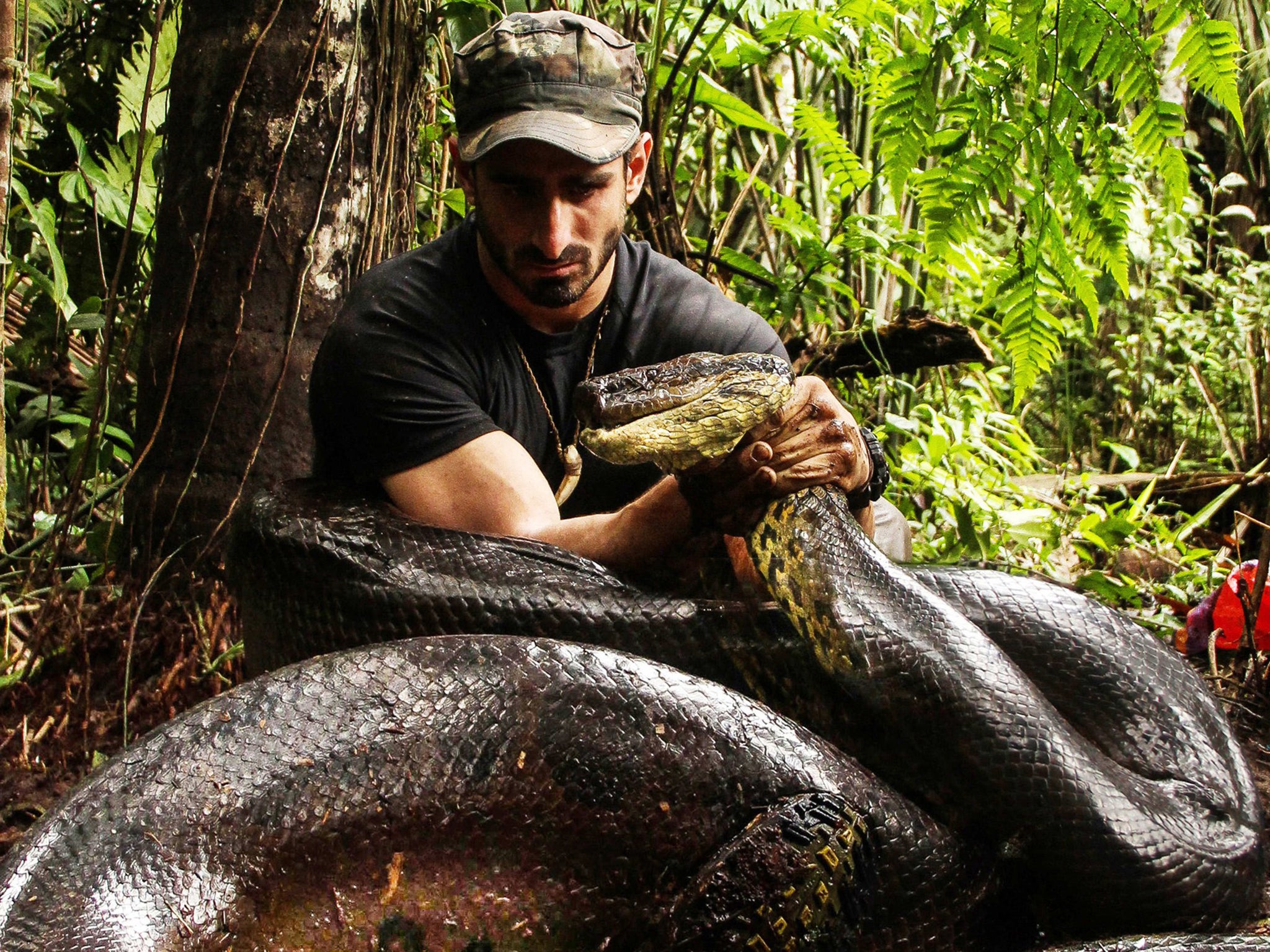Eaten Alive: Can the Discovery Channel recover from a series of fear-mongering shows?
A broadcaster that begun with a mission to educate has gained a reputation for hype and fabrication. Time for a reality check reports Tim Walker

As a boy, Jonathan Davis always looked forward to Shark Week on Discovery Channel. So when, as a shark biologist at the University of New Orleans, he was approached in 2013 to take part in a Shark Week documentary, he naturally accepted.
The film-makers said they wanted to discuss his research into bull sharks in Louisiana. But as his interview came to a close, “the guy nonchalantly asked whether I’d ever heard of something called the ‘voodoo shark’ in southern Louisiana. I said I’d never heard of it, and that it was a myth probably created by fishermen.”
The subsequent documentary, Voodoo Sharks, turned out to be about a mythical shark known as “the Rookin”. An excerpt from Mr Davis’s on-camera interview was used to suggest he believed the voodoo shark could be real.
“As a kid, it was my dream to be on Shark Week,” Mr Davis told The Independent. “The dream came true; it just didn’t exactly turn out like I thought it would.”
Mr Davis’s experience with Discovery is symptomatic of the qualitative decline of the channel, founded in 1985 as a platform for popular scientific and educational programming, which over the past decade has strayed from serious documentaries towards reality TV and bizarre wildlife-themed entertainment.
Last week the channel’s new president, Rich Ross, hinted that the leopard may yet change its spots, telling a press conference in California that the network’s controversial strand of faux-documentaries had “run its course”.
Perhaps the most notorious of all Discovery Channel’s broadcasts was the two-hour curtain-raiser to Shark Week 2013. Megalodon: The Monster Shark Lives was about a real, but extinct, 60-foot predator which the film suggested might still be alive.
Though prefaced by a blink-and-you’ll-miss-it disclaimer explaining that it was largely fiction, The Monster Shark Lives apparently convinced more than 70 per cent of its viewers that the Megalodon was not extinct, according to an unscientific web poll conducted by Discovery immediately after broadcast. The ratings were so strong that the beast returned for Shark Week 2014 in another film, Megalodon: The New Evidence.
In 2012, Discovery’s sister channel Animal Planet aired a fake documentary about mermaids, which prompted so many enquiries to the US National Oceanic and Atmospheric Association that the agency felt obliged to release a statement explaining that “no evidence of aquatic humanoids has ever been found”.
More recently, Discovery broadcast the much-hyped Eaten Alive, in which a snake researcher tried to persuade a giant anaconda to swallow him on camera, only to call off the stunt at the last moment. The programme prompted complaints both for failing to deliver the spectacle promised in its title, and for animal harassment.
In pictures: Discovery Channel's 'Eaten Alive'
Show all 5Speaking to reporters at last week’s event in Pasadena, Mr Ross suggested Discovery’s mission statement needed to be modified. “If there was one word, it would be ‘authentic,’” which, he said, ought to apply to “everything we have on the air.” Noting that he had lured the Emmy award-winning producer John Hoffman from HBO to take charge of documentaries at Discovery, Mr Ross said of shows like Megaladon: “I don’t think it’s actually right for Discovery Channel, and it’s something that I think has, in some ways, run its course.”
David Shiffman, a shark expert at the University of Miami and a leading social media critic of Discovery’s sensationalist programming, says he is “cautiously optimistic” about Mr Ross’s plans. “Discovery’s reputation used to be wonderful, and I think it can be again,” he said.
Dr Christie Wilcox, a Hawaii-based marine biologist, who blogs for Discover magazine (unrelated to Discovery), said the broadcaster has a lot of bridges to repair. “Last year, they made a Shark Week special about sharks on Hawaii,” she said. “But they didn’t have a single scientist who studies sharks in Hawaii… because the shark labs out here refused to work with them.”
Among the more prominent critics of the Megalodon films was Wil Wheaton, who starred in Star Trek: The Next Generation. “Discovery Channel betrayed its audience,” Mr Wheaton wrote on his blog, after Megalodon: The Monster Shark Lives was first broadcast. “Discovery Channel is more than just disposable entertainment on cable television. Discovery Channel inspired an entire generation to ‘explore your world’, and it is trusted to be truthful.”
Mr Davis is concerned by the impact of such anti-factual films on children. He said that when he speaks to young people “[most] of their questions are related to Megaladon, to shark attacks that never happened, to scientists that aren’t real scientists, or they’re ‘have you ever been bitten by a shark?’ – because those are the only shows that they broadcast on Shark Week.”
US educational television in general is in a worrying decline, said Mr Shiffman. “It’s not just Discovery. If you turn on the History Channel, there’s a good chance it’ll be a show about aliens helping Hitler. The Learning Channel shows Here Comes Honey Boo Boo. It suggests there’s nothing real that people care about enough to watch, and that’s just not true.
“Look at the success of Blue Planet and Planet Earth; they’re some of the most highly viewed nature documentaries in history and there’s no people in them, just amazing animals doing cool things. It’s not hard to get it right and also make it entertaining – the BBC does it all the time.”
Subscribe to Independent Premium to bookmark this article
Want to bookmark your favourite articles and stories to read or reference later? Start your Independent Premium subscription today.

Join our commenting forum
Join thought-provoking conversations, follow other Independent readers and see their replies